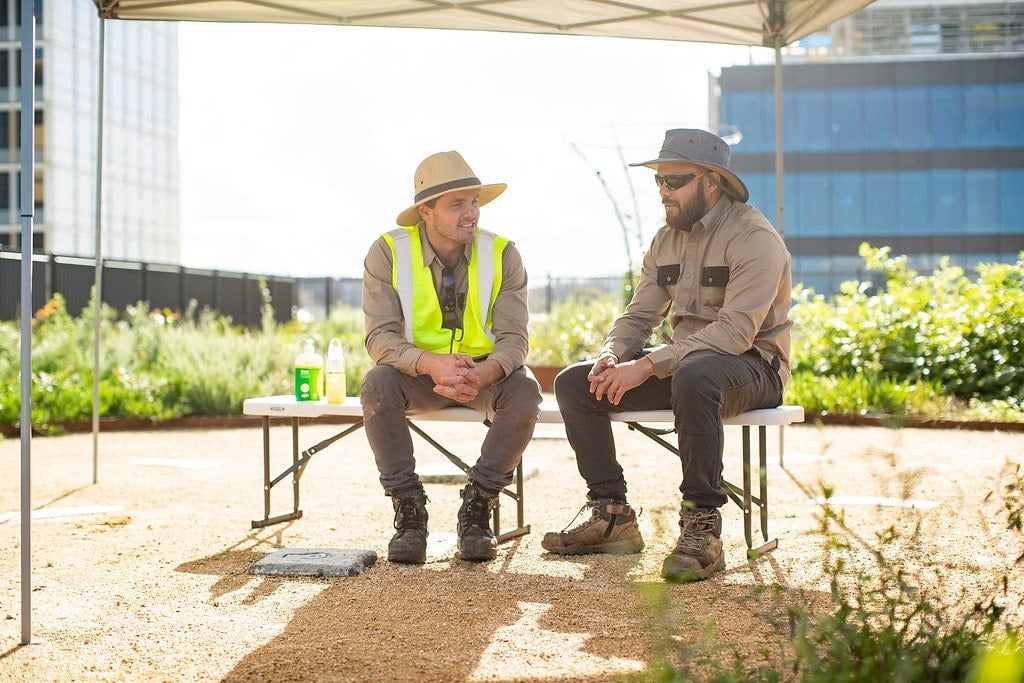Blog
Cancer in the workplace is a growing issue. Is your organisation ready?
5 November 2012

Cancer is the leading cause of death and disability in Australia, with one in two males and one in three females living to the age of 85 receiving a cancer diagnosis at some stage in their life.
In 2008 approximately 40% of new cancer diagnoses occurred in people of working age, many of whom are in the midst of their career.
These statistics have significant implications for those managing the workforce, as millions of sick days will be lost to cancer in coming years, and valuable staff may decide that it is just too hard to manage their treatment and their workplace responsibilities.
While many people choose to take time off work during cancer treatment, others prefer to continue to work, either to keep up a sense of normality, or for financial reasons. Others may be caring for a partner, parent or child with cancer while juggling their own work and other commitments.
The way that people deal with their own cancer is as individual as the person themselves. Some may want to keep the fact that they have cancer private while others are very open about it. Some may cope very well with working during and after their treatment, others may find that this is just not possible or that their treatment affects the way they are able to do their job. They all require a supportive work environment to respond to these variables and to continue to contribute to their workplaces where possible or appropriate. HR and line managers can discuss individual circumstances and needs, and help develop plans to facilitate these adjustments.
Support for employers
Dealing with cancer in the workplace is a complex and sensitive issue and many employers may find communicating about cancer difficult. It can be a daunting subject, and some employers worry that they may say the wrong thing. They may just need some guidance.
How to support an employee with cancer
Some simple steps that HR practitioners and line managers can take to make it easier for an employee to continue to work during treatment include making temporary adjustments to workloads, providing flexible working arrangements, additional leave, access to parking, a quiet place for taking a rest, drafting a return-to work plan, and promoting a better understanding of cancer among colleagues.
Two-way communication is the key. Ideally both the employer and employee should agree on realistic working conditions, hours and workloads. This can ensure the employee is not put under excessive pressure and also allows the employer to make alternative arrangements to deal with any business productivity concerns.
Supporting employees affected by cancer is a two-way street. It may boost staff morale, improve organisational loyalty and foster a positive culture within the organisation. Furthermore there are sound business reasons for supporting staff with cancer, as retaining good staff saves recruitment and training costs, and keeps valuable expertise and corporate knowledge within the organisation.
Cancer Council NSW has produced a series of online workplace resources that include practical tips for HR departments and managers about creating cancer-friendly workplaces. They include fact sheets on developing (or reviewing) cancer-friendly organisational policies, tips for talking to employees about their cancer, practical ideas about supporting employees undergoing treatment or caring for someone with cancer, and information on dealing with death and bereavement. Developed with the needs of both employers and employees in mind, they offer relevant information about cancer treatments and their common side effects, debunk some myths that may make it difficult for colleagues and managers to talk openly about an employee's cancer and offer practical suggestions for developing cancer-friendly workplaces.
Cancer Council has developed a range of workplace resources for employers and their employees.
Or, you can call the helpline on 13 11 20 to speak to someone in your state Cancer Council office for more information on locally based services.
Gillian Batt is the director of cancer information and support services at the Cancer Council.
This blog also appears on the Australian Human Resources Institute (AHRI) blog.
Tags
